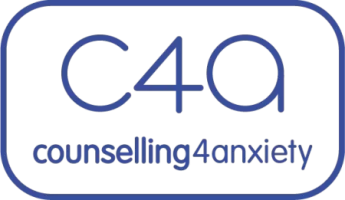One of the paradoxes of people with anxiety conditions, whether that be a Social Anxiety Disorder or Panic Disorder, is that sufferers usually translate the experiences into a set of life threatening experiences, given that their sympathetic nervous system is triggered and with that there are corresponding increases in their heart rates, sweating, breathing rates and nervous agitation. The body has in effect, gone into 'flight or fight' mode.
So, it is totally understandable that people with anxiety conditions see these bodily and psychological impacts as being life threatening and things that they need to guard against. Many spend much of their time 'fearing fear', seeking to contain any bodily responses that simply feel like that they could be anxiety related. This containment and ultra-sensitisation to bodily feelings that are associated with anxiety, become part of the anxiety risk that individuals start to fear. Over time, this fear of fear has a snowball effect of its own and can be one major trigger towards panic and panic disorder and also renders thoughts within sufferers that they 'are not able to cope'. These thoughts become ego-dystonic and add another layer to the sense of fear. They also create an overestimation of risk in the minds of sufferers and an under-estimation of their ability to cope.
The whole process is based on fear and the continuation of the fear of fear. No wonder sufferers feel confused, unable to cope, overwhelmed and lost as they live with the anxiety states and conditions. Furthermore, many health and General Practitioners with limited time to treat individuals try and assist patients by advising them on medications and the need for therapy. Both of these treatments are extremely useful and have helped tens if not hundreds of millions of people around the globe, but the point that I am making is the language that is used with patients can further re-enforce the belief that they are different and that they have a mountain to climb to get better. So the language simply adds to the sense of pathology and difference. Yet, the use of more compassionate language with patients can significantly help in the healing process.
Let me give you an example. General Practitioners who sit with patients and voice the fact that anxiety is the body's way of trying to keep them safe because of past events, is a far more useful way of destigmatising and reducing fear around anxiety. It honours the body and how it seeks to keep individuals safe albeit through a mal-adjusted and ultra-sensitised early warning system and through the flight or fight response. Such language reduces a sense of large hurdles to be overcome by patients and reduces the sense that they are different and inherently 'faulty'.
Language is therefore important and how we convey anxiety based bodily responses to patients can help them in healing and in grounding them to the fact that their bodies are not the problem, but that they can work through these issues. So, as ever, I call out to mental health professionals to change the way they address anxiety with patients and help them to look at it through a more compassionate viewpoint; that their bodies are simply trying to defend them because of part experiences and perceptions.

